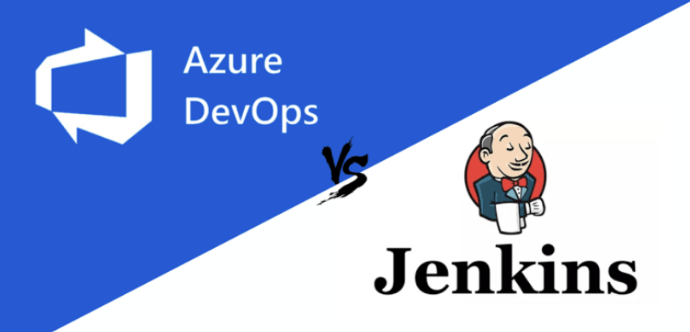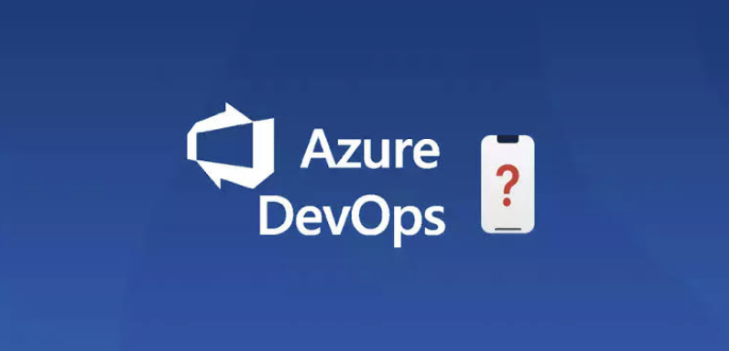Jenkins vs. Azure DevOps

Organizations can now deploy apps as well as services at a rapid pace thanks to the emergence of DevOps, which has proved revolutionary for contemporary companies. One can more easily see a corporate landscape in 2023 where digital transformation is driven by the principles of continuous integration as well as continuous delivery (CI/CD). With Azure DevOps Training Jenkins and Azure DevOps are at the center of this change because they give organizations a competitive edge.
Table of Contents
- What is Jenkins?
- Essential Jenkins features and capabilities
- Jenkins’ Restrictions
- What is DevOps in Azure?
- Azure DevOps’s essential features and capabilities
- The Strength of Microsoft Azure DevOps
- The Azure DevOps System’s Limitations
- Analysing Jenkins vs Azure DevOps
- Cases where Jenkins performs well
- Cases when Azure DevOps is most effective
- Obstacles and Things to Think About
- Jenkins and Azure DevOps market predictions for DevOps tools
- What effects does the new technology have on Jenkins and Azure DevOps?
- Conclusion
What is Jenkins?
Originally launched in 2011 as a branch of the Hudson undertaking, Jenkins is an open-source web server for automation. With a large and expanding community of developers all over the world, Jenkins has quickly risen to prominence as a leading continuous integration and delivery platform.
With Azure Devops Training, learn how Jenkins essentially automates the building, testing, as well as deploying processes in the creation of software, which allows for continuous enhancement as well as delivery.
Its purpose is to alleviate the many delivery-related problems that developers face while simultaneously ensuring a high level of continuous integration as well as delivery.
Essential Jenkins features and capabilities
- CI/CD
With Azure Devops Training, you learn about powerful CI/CD capabilities. It enables programmers to streamline the procedure of deploying apps to production as well as integrating code modifications. Jenkins allows you to plan and run even the most intricate pipelines.
- The pipelines construction
When it comes to integrating and implementing ongoing delivery pipelines, Jenkins Pipelines has you covered with a set of plugins. The pipeline functionality allows customers to set up the deployment pipeline for their application using a Domain Specific Language (DSL).
- Integrations and plugins
Jenkins’ almost limitless integration possibilities are a few of its major assets. Jenkins is compatible with nearly all DevOps tools, including Git, Docker, as well as a number of cloud platforms, thanks to its 1,500+ plugins.
- Featherweight Jenkins
The abundance of plugins with integrations created by the Jenkins community plus the fact that it is open-source make it a favorite among developers. Its robust pipeline features enable a smooth CI/CD experience, and its adaptability makes it suitable for nearly any technology stack.
Jenkins’ Restrictions
Jenkins does have certain limitations, despite all of its benefits. Manually configuring while setting up every project can be a tedious ordeal, particularly for newcomers, and the first setup should be quite involved. Also, compared to other CI/CD systems, the interface could seem antiquated and difficult to use.
Read: Prominent Frameworks for Beginners to Have a Fruitful Career
What is DevOps in Azure?

The Microsoft Azure DevOps platform is a SaaS offering development collaboration tools including Git databases, panels, high-performance pipelines, as well as comprehensive automated testing.
Azure DevOps’s essential features and capabilities
Now that we’ve covered “Key characteristics and features of Azure DevOps,” let’s examine what makes this platform so useful for teams and engineers.
- Surfaces
Agile technologies such as boards, backlogs, sprint planning tools, as well as dashboards are available on Azure Boards. With Azure Devops Training, learn how teams can use these boards to plan, monitor, and discuss tasks as they go through the development procedure.
- Reposals
You can use Azure Repos to store your code’s source code in Git or Team Foundation Version Control (TFVC).
- Pipelines
Using the cloud service Azure Pipelines, you can automate the process of building, testing, and deploying your code with any platform. Native support for Azure Functions, Kubernetes, as well as virtual machines (VMs) is part of this, as are robust continuous integration and delivery functionality like Jenkins.
- Testing Plans
One way to keep tabs on your testing progress and make sure everything is in order is with Azure Test Plans. It enables thorough preparation of tests as well as comprehensive reporting of their execution.
- Construction
With Azure Artifacts, the group can easily build, host, and transmit packages like Python, NuGet, npm, as well as Maven. For your convenience, it is completely compatible with CI/CD pipelines.
The Strength of Microsoft Azure DevOps
Businesses with a strong investment in the Microsoft ecosystem will find Azure DevOps to be an attractive choice due to its interaction with different Microsoft services. The package of tools provides a complete solution that may span the whole application phases, and the consumer interface is clear and intuitive.
The Azure DevOps System’s Limitations
Azure DevOps is an effective tool, however it isn’t without its flaws. Although it has a lot of features, some people think it’s not as configurable as other choices. The tool’s integrations can also use some work if you’re highly reliant on technology stacks that aren’t Microsoft products.
Analysing Jenkins vs Azure DevOps
Now go through an exploration of software development as we compare and contrast Jenkins as well as Azure DevOps.
- Simple Installation and Interaction
Particularly for newcomers, Jenkins installation can be a daunting task. Though sophisticated, its interface isn’t as user-friendly as Azure DevOps’. On the other hand, Azure DevOps offers a simpler setup with an updated interface that is both healthier as well as contemporary.
- Tool compatibility and integrations
Jenkins is great at integrating systems. It is compatible with almost each tool in the DevOps ecosystem thanks to its more than 1,500 plugins. While dealing with a varied technology stack, Azure DevOps may need to be more adaptable, despite its strong synergies within the Microsoft ecosystem.
- Easily personalise and adapt
Jenkins provides great adaptability and customization options because of its open-source nature. The trade-off could be more frequent and expensive repairs. Azure DevOps offers a more simplified and maintenance-free knowledge, but it is less flexible.
- Protection Mechanisms
Strong security measures are available in both Jenkins and Azure DevOps. In contrast, Azure DevOps, a platform in the cloud that runs on Azure, has access to enterprise-level security as well as Microsoft’s ongoing security patches.
Organizations might benefit from knowing the precise use cases for Jenkins and Azure DevOps while deciding on CI/CD technologies.
Cases where Jenkins performs well
When working in situations with a wide variety of technology piles, Jenkins really shines. It is a versatile tool for many different kinds of work because of its large plugin library. Companies who value customization as well as are ready to put in the effort to set up and manage a Jenkins system will love it.
Thanks to Jenkins’s adaptability, seasoned programmers may design complex CI/CD pipelines that match their specific processes.
By way of illustration, Jenkins’ open-source nature and number of readily accessible plugins may be a boon to businesses navigating a terrain of varied open-source tools. The tool can simplify development operations by integrating different technologies into one pipeline.
Cases when Azure DevOps is most effective
Companies with deep roots in the Microsoft ecosystem will benefit most from Azure DevOps. It provides a unified, frictionless experience thanks to its compatibility with a variety of Microsoft services. Azure DevOps offers a one-stop shop for enterprises looking for a platform that covers all their bases, including agile planning, control of sources, automated developments, testing, as well as release management. Azure DevOps is a great fit for large companies that use a lot of Microsoft products in their technology stack.
A consolidated solution for end-to-end software distribution, the platform is attractive because of its integration possibilities with additional products from Microsoft and the solid security protections that are intrinsic to Microsoft’s solutions.
Obstacles and Things to Think About
Jenkins as well as Azure DevOps users have collaborated to identify possible obstacles. Users of Jenkins have mentioned the difficulty of both the initial setup as well as the continuing maintenance. However, when incorporating non-Microsoft products, Azure DevOps customers may encounter limitations in customisation.
This highlights the significance of matching tool selections with organizational needs. Organizations may facilitate efficient and effective software delivery by making educated judgments based on an understanding of the distinct benefits offered by each tool.
Jenkins and Azure DevOps market predictions for DevOps tools
When it comes to DevOps tools, Jenkins as well as Azure DevOps are likely to be around for a while. Integration, distribution, and automation are becoming increasingly commonplace, which bodes well for the future of both systems.
Grand View Research predicts that the worldwide DevOps industry will expand from its current size of $10.2 billion in 2023 to the amount of $15.6 in 2025, a CAGR (compound yearly growth rate) of 18.6%.
It is reasonable to assume that Jenkins as well as Azure DevOps, two prominent participants in this space, will keep inventing and adjusting to suit the changing demands of teams working in DevOps.
What effects does the new technology have on Jenkins and Azure DevOps?
In a larger sense, the usage of Kubernetes and other cloud-native technologies is impacting the use of Jenkins as well as Azure DevOps, as is the container shipping paradigm.
Jenkins has made a big move toward Kubernetes with the Jenkins X project. As an example of how committed they are to staying up-to-date with developments in technology, Jenkins X offers automatic CI/CD for cloud-native apps in a Kubernetes context.
Since Azure DevOps is an integral part of Azure, it is prepared to work in a cloud-native environment. With the expansion of Azure Kubernetes Service (AKS) and other containerized services for applications, Azure DevOps is well-positioned to offer strong support for these kinds of technologies.
With Azure DevOps Training, learn how the CI/CD landscape is going to be affected by the growing trend of microservices. To better serve systems built on microservices, Azure DevOps and Jenkins will need to modify their products.
Conclusion
Taking into account aspects like technological stack, knowledge, money, and unique needs is critical when selecting the best DevOps solution for your company. Users of Microsoft products tend to favor Azure DevOps because of its seamless integration and Jenkins’s exceptional versatility. The two tools will keep improving along with the DevOps industry.
